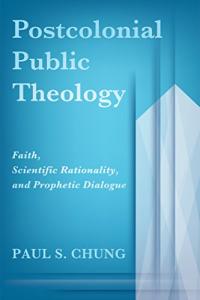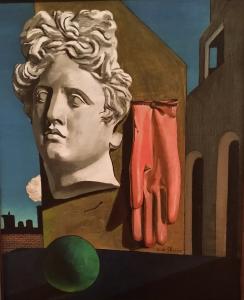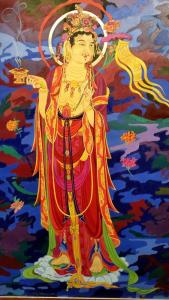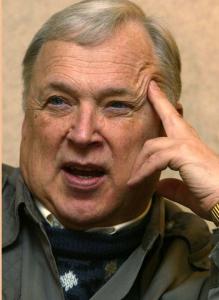 The Public Theology of Paul S. Chung
The Public Theology of Paul S. Chung
Patheos PT 5008.
What is public theology? Paul S. Chung answers. “Public theology is a theological-philosophical endeavor to provide a broader frame of reference to facilitate the responsibility of the church and theological ethics for social, political, economic, and cultural issues. It investigates public issues, developing conceptual clarity and providing social-ethical guidance of religious conviction and response to them” (Chung 2016, 1). For Chung, theological prompts are responded to philosophically and then clarified for interaction with social forces.
Who are the world’s cutting edge public theologians? Here in this Patheos column, we have introduced the contributions of prominent scholars such as Noreen Herzfeld, Karen Bloomquist, Katie Day, Kang Phee Seng, Mwaambi Gideon Mbûûi, and others. In this post we introduce Paul S. Chung.
If you want more resources on Public Theology, click here.
Meet Paul S. Chung
Meet Paul S. Chung. The Rev. Dr. Mr. Chung is already a planetary scholar. His birth and youth in South Korea were followed by his doctorate in Europe. Now he is practicing public theology in North America. More than some others, he grasps the dialectic between the local and the global. He grasps the interaction between theology and culture. In addition, he grasps the creative interaction between two Reformation confessions, the Reformed and the Lutheran.
 Three decades ago he wrote his doctoral dissertation at the University of Basil on “Karl Barth, Ernst Troeltsch, and Hegel’s philosophy of religion.” This was followed by his Habilitationsschrift: “Max Weber, Comparative Ethics and Protestant Buddhism.” He had gone to Europe to study after graduating from Han Shin University in his native South Korea. In recent years he has served in America both as a parish pastor in northern California and as a professor at Luther Seminary in Minnesota, Wartburg Seminary in Iowa, and the Lutheran Theological Seminary at Chicago.
Three decades ago he wrote his doctoral dissertation at the University of Basil on “Karl Barth, Ernst Troeltsch, and Hegel’s philosophy of religion.” This was followed by his Habilitationsschrift: “Max Weber, Comparative Ethics and Protestant Buddhism.” He had gone to Europe to study after graduating from Han Shin University in his native South Korea. In recent years he has served in America both as a parish pastor in northern California and as a professor at Luther Seminary in Minnesota, Wartburg Seminary in Iowa, and the Lutheran Theological Seminary at Chicago.
Relevant to the Patheos blog on Public Theology are some of his recent books such as Public Theology in an Age of World Christianity: God’s Mission as Word-Event (Palgrave Macmillan, 2010); Postcolonial Imagination: Archeological Hermeneutics and Comparative Religious Ethics (Hong Kong: Christian Study Centre on Chinese Religion and Culture, 2014); Postcolonial Public Theology: Faith, Scientific Rationality, and Prophetic Dialogue (Cascade Books, 2016); and Critical Theory and Political Theology: The Aftermath of Enlightenment (Palgrave Macmillan, 2019). What occasions this interview is a brand new book hot off the press, Public Theology and Civil Society (EBL, 2021).
Public Theology and Christian Realism
- You have just published a new book on public theology. What new frontiers do you approach or even cross in this new work?
I have completed a two volume book about public theology: Public Theology and Civil Society: Constructive Formation plus Public Theology and Biopolitics: Postcolonial Formation.

Many scholars talk about public relevance of theology in secular society and the world. But I want to clarify how the public sphere is defined in a philosophical, sociological and theological context.
Reinhold Niebuhr, in his book Moral Man and Immoral Society, inspires me to engage in the western tradition of justice, liberal democracy and civil society (Hobbes, Locke, Rousseau, and Kant, and John Rawls) in critical dialogue with teleological-dialectical tradition (Aristotle, Hegel, and Marx). I seek to bring their respective insights to relevance with Christian realism (Niebuhr), religious socialism of early Tillich and Barth and Bonhoeffer.
If I feature public theology as philosophical theology involving democracy, common good, and civil society, I find it critical to relocate Christian prophetic theology within the political tradition of democracy, civil society, and life-world in order to advance a distinctive position in difference from political theology and liberation theology.
Theology of Nature within Public Theology
- In an earlier book, Postcolonial Public Theology: Faith, Scientific Rationality, and Prophetic Dialogue, you included natural science among those facets of culture that the public theologian should engage. Do you still hold this? If so, why.
 I think theology of nature is one of the greatest assets to characterize and reinforce public theology and its contribution. Public health along with biomedical ethics in the time of the Pandemic remains crucial in public theology. We should focus on the extent to which natural science and its technological achievement would be embedded with public policy, health, and virus in terms of beneficence, human dignity, common good, and distributive justice.
I think theology of nature is one of the greatest assets to characterize and reinforce public theology and its contribution. Public health along with biomedical ethics in the time of the Pandemic remains crucial in public theology. We should focus on the extent to which natural science and its technological achievement would be embedded with public policy, health, and virus in terms of beneficence, human dignity, common good, and distributive justice.
More than that, a sociological concept of biopolitics helps me to relate public theology to the realm of biomedical justice and gene-ethics. Public theology would be incomplete and abstract without grasping how natural science is going on and influencing public use of reason and human life in our secular society.
Political Theology and Public Theology
- Do you distinguish between public theology and political theology? What do these two share in common? How do they differ?
Political theology in the German context, as I know, began its argument after Auschwitz in order to emphasize the political responsibility of faith and its discipleship in society. Faith is no longer a private matter. Political theology (a la Moltmann and Metz) takes issue with an previous form of political theology (Carl Schmitt), which appropriates Thomas Hobbes’ political theory of State (Leviathan). More than that, the post World War II theologians seek to pursue a form of metanoia in face of Holocaust and anti-Semitism.
 Meanwhile, political theology is seriously challenged by student movements in German universities. It has been critically engaged in Christian-Marxist dialogue along with liberation theology in Latin America. It widens its spectrum in articulating responsibility of the church in interreligious dialogue. I affirm Hans Küng, a postmodern theologian of global ethics and world religions, in his study of Judaism and Islam. [Elsewhere Chung compares and contrasts grace in Buddhism and Christianity]
Meanwhile, political theology is seriously challenged by student movements in German universities. It has been critically engaged in Christian-Marxist dialogue along with liberation theology in Latin America. It widens its spectrum in articulating responsibility of the church in interreligious dialogue. I affirm Hans Küng, a postmodern theologian of global ethics and world religions, in his study of Judaism and Islam. [Elsewhere Chung compares and contrasts grace in Buddhism and Christianity]
Nevertheless, in my view, contemporary political theology tends to undermine sociological analysis of diverse fields in postcolonial civil society and its cultural stratification. Cultural issues such as race, gender, sexuality, immigration, and multiculturalism or religious pluralism are not sufficiently treated as problematics of political theology. Cultural issues such as inculturation or competing life-worlds of comparative religions are not resolved by political theology.
The third world or people of the periphery are already in the first world by multiculturalizing first world society. Multiculturality is now woven into a colorful tapestry. I call this complex reality a postcolonial condition, which is missing in political theology.
At this juncture, I find it distinctive to conceptualize public theology in terms of discourse clarification and postcolonial epistemology. A genealogy of discourse clarification is to analyze the extent to which religious discourse would find an elective affinity with symbolic material interests and power relations, while emphasizing the role of agency in society and culture.
The Importance of Discourse Clarification
Discourse clarification fully incorporates problematics of theology of culture and comparative study of religions into public epistemology and hermeneutical skill in postcolonial civil society. This constructive approach to public theology also runs counter to postcolonial theory in deconstruction and power reductionism in which a hermeneutical malnutrition occurs. The anemic position we see all to often is this: if everything is power, nothing is power.
To tackle the agenda of public spheres cannot avert integrating the reality of postcolonial condition, which is precipitated by globalization and international exchange of information and mass media. If political theology begins by critiquing a conservative tradition of Hobbes and Schmitt and emphasizes political dimension of Christian faith and its ethics of discipleship in the light of kingdom of God, public theology is first of all concerned with issues of civil society, democracy, and common good. Christian public theology fully utilizes social scientific theory and cultural theory in the multivariate framework in the discussion of issues of social stratification (race, gender, sexuality, public health, scientific achievements, problem of immigration, and religious pluralism).
 Then, public theology shares with political theology a responsible ethics of discipleship, collaboration with civil society initiative, and solidarity with the subaltern. Beyond political theology, public theology is more concerned with public spheres in postcolonial condition by integrating the postcolonial hermeneutics, discourse analysis, and comparative study of world religions, and inculturation. This type of public theology may find its significance and interaction in African public theology in its engagement with traditional culture and religions, Islam, and decolonizing independence in postcolonial construction.
Then, public theology shares with political theology a responsible ethics of discipleship, collaboration with civil society initiative, and solidarity with the subaltern. Beyond political theology, public theology is more concerned with public spheres in postcolonial condition by integrating the postcolonial hermeneutics, discourse analysis, and comparative study of world religions, and inculturation. This type of public theology may find its significance and interaction in African public theology in its engagement with traditional culture and religions, Islam, and decolonizing independence in postcolonial construction.
The Dialectic between Local and Global Contexts
- How do you view the dialectic between the local or contextual responsibilities of the public theologian and the wider context of global political, economic, and communication forces?
On the one hand, public theology begins with social scientific and cultural analysis of diverse fields of public spheres, which are culturally stratified and ethnically embedded with postcolonial reality.

As earlier noted, public theology has a broader spectrum than political theology, because it focuses on analysis of elective affinity between religious discourse and symbolic-material interests. The public theologian explores relations between agency, power relations, scientific-technological rationality, and common good. This regime of problems belongs to the task of discourse clarification and semantic retrieval, which galvanizes public theology toward racial, or ethnic justice, politics of recognition, and respect of different life-worlds, especially in light of theologia crucis, reconciliation, and proleptic mission of God’s reign. (Global Heart by Madi, Bali)
In so doing, Public theology in multivariate framework respects each different life-world (religion and culture) of those living in the civil society of the metropolis.
On the other hand, public theology is to take into account the global Empire, which shapes and influences the domestic realm as well as the international level.
Our life-world along with our civil society must be defended by encroachment by the global Empire in its neoliberal thrust that undermines the common good. Neo-liberalism represents a form of resurgence of laissez faire capitalism, social Darwinism, and colonial domination.
Given this, public theology requires discourse clarification and worldview construction by drawing attention to the widest possible context of planetary political, economic, and communication forces. For this global interconnection public theology reinforces a new ethics of cosmopolitan hospitality, politics of recognition, and alternative modernities (Charles Taylor).
Conclusion
Paul S. Chung sails the rough seas of public discourse in a theological skiff with a keel sunk deep in Barthian waters. While the planet’s oceans surround and separate the civilized continents, Chung’s post-colonial compass leads him toward a Christ-centered harbor of global wholeness.
Bibliography
Chung, Paul. 2016. Postcolonial Public Theology: Faith, Scientific Rationality, and Prophetic Dialogue. Eugene OR: Cascade Books.
Peters, Ted. 2021. “Public Theology, Discourse Clarification, and Worldview Construction.” Theology and Science 19:1 1-4.
Peters, Ted. 2018. “Public Theology: Its Pastoral, Apologetic, Scientific, Political, and Prophetic Tasks.” International Journal of Public Theology 12:2 153-177.
▓
 Ted Peters is a Lutheran pastor and emeritus seminary professor. He is author of Short Prayers and The Cosmic Self. His one volume systematic theology is now in its 3rd edition, God—The World’s Future (Fortress 2015). He has undertaken a thorough examination of the sin-and-grace dialectic in two works, Sin: Radical Evil in Soul and Society (Eerdmans 1994) and Sin Boldly! (Fortress 2015). Watch for his forthcoming, The Voice of Public Christian Theology (ATF 2022). See his website: TedsTimelyTake.com.
Ted Peters is a Lutheran pastor and emeritus seminary professor. He is author of Short Prayers and The Cosmic Self. His one volume systematic theology is now in its 3rd edition, God—The World’s Future (Fortress 2015). He has undertaken a thorough examination of the sin-and-grace dialectic in two works, Sin: Radical Evil in Soul and Society (Eerdmans 1994) and Sin Boldly! (Fortress 2015). Watch for his forthcoming, The Voice of Public Christian Theology (ATF 2022). See his website: TedsTimelyTake.com.
▓













